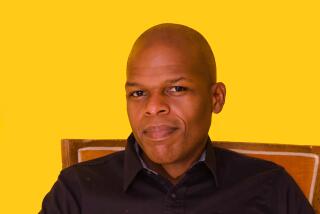Review: ‘The Glass Castle’ is an unconventional-family tale with heart and a strong performance by Woody Harrelson
“I was sitting in a taxi, wondering if I had overdressed for the evening, when I looked out the window and saw Mom rooting through a Dumpster.”
That’s the unnerving first sentence of Jeannette Walls’ 2005 memoir, “The Glass Castle,” and its audacious combination of candor, unsentimentality and sheer storytelling skill illustrates both why it spent 261 weeks on the New York Times bestseller list and why, intensely dramatic though it is, this story was a long shot to become the tough and touching film, honest and heartfelt, it largely turns out to be.
For to do justice to the flat-out Dickensian childhood Walls and her siblings experienced with the nominal adults who were both the worst and best of parents, it’s necessary to understand the balance between breaking away from and accepting a torturous past that is the book’s essence.
Director and co-screenwriter Destin Daniel Cretton, whose last film was the richly emotional “Short Term 12,” is at home with that dynamic. Adapting Walls’ book with Andrew Lanham, Cretton appreciates, with minimal missteps, that the complexities of the parent-child connection can create roiling emotions that are not as mutually exclusive as they seem.
Starring as Jeannette is Brie Larson, an Oscar winner for “Room,” whose empathetic performance was the heart of “Short Term 12.” The structure of “Glass Castle,” however, prevents her from dominating in the same way here.
While Walls’ authorial voice holds the book’s multiple time frames together, the nature of the narrative demands that three different actresses, Larson and two excellent pre-teen performers, Ella Anderson and Chandler Head, share the role.
Filling what might otherwise be a connectivity gap are the only actors we follow through the entire film, Naomi Watts and Woody Harrelson, as Jeannette’s way-off-the-grid parents, Rose Mary and Rex Walls.
The always reliable Watts is excellent, bringing integrity and strength to the supporting role of Jeannette’s mother, a self-absorbed artist who was more interested in her work (examples of which are in the film) than in her children.
The heart of the reason “Glass Castle” succeeds as well as it does, however, is Woody Harrelson’s splendid starring performance as her uncategorizable father. Larger than life in both good and bad ways, Rex is brilliant and dangerous, both bully and savior, a tormented man who inspired as well as plagued his children, someone whose increasingly serious drinking and the behavior it caused undercut the genuine love he had for his family.
The veteran Harrelson, who has described his own life as far from conventional, thoroughly understands Rex from the inside, immersing himself in the role of this charismatic man in a way that allows us to see both how compelling and how dangerous a parent he was.
“Glass Castle’s” story begins in 1989, with Larson’s adult Jeannette firmly established as a Manhattan media figure who writes New York Magazine’s gossipy Intelligencer column.
We’re introduced to Jeannette joining her fiancé, David (Max Greenfield), a button-downed financial advisor, at dinner with potential clients. After dinner (and after telling David “when it comes to my family, let me do the lying”), she looks out of a cab window to see her parents, who are squatting in an abandoned building, in full Dumpster-dive mode.
That vision leads to a lunch with Rose Mary, where her mother both tries to walk off with everything edible that isn’t tied down and tells Jeannette that her values are all confused and she couldn’t possibly be happy with her materialistic life.
“Glass Castle’s” structure alternates that New York present with flashbacks to Jeannette’s childhood experiences, starting at age 3 when, played by Chandler Head, she was cooking hot dogs over a gas flame and her dress caught on fire.
When officious hospital authorities (there were no other kind as far as Rex was concerned) eventually ask questions about why none of Jeannette’s siblings was at school, Rex busts her out of the place and the family takes off on yet another of an endless series of town changes that happened when things got too difficult. Which was often.
Careening off road into a desert when a child mentions “real school,” Rex proclaims that “this is as real as it gets. You learn from living, everything else is a damned lie.”
While “Glass Castle” takes pains to show Rex’s positive aspects, like his plan to build the all-glass, solar-powered structure that gives the book its name, those wane for Jeannette (now played by Ella Anderson) once she gets older and Rex’s drinking increases.
Things get worse once Rex reluctantly moves the family back to his hometown of Welch, W.Va., (Robin Bartlett is tiptop as intimidating mother Erma) and Jeannette comes to feel that the freedom her father touts seems a lot like chaos.
These complexities of plot and emotion make Walls’ memoir a difficult feat to pull off as a film. Though he is on less certain ground during the narrative’s moments of warmth than when things are grim, director Cretton manages it all successfully. With Woody Harrelson as its dependable lodestar, “The Glass Castle” never loses its sense of direction or its belief in where it’s going.
Rating: PG-13 for mature thematic content involving family dysfunction, and for some language and smoking
Running time: 2 hours, 7 minutes
Playing: In general release
See the most-read stories in Entertainment this hour »
Movie Trailers
More to Read
Only good movies
Get the Indie Focus newsletter, Mark Olsen's weekly guide to the world of cinema.
You may occasionally receive promotional content from the Los Angeles Times.







